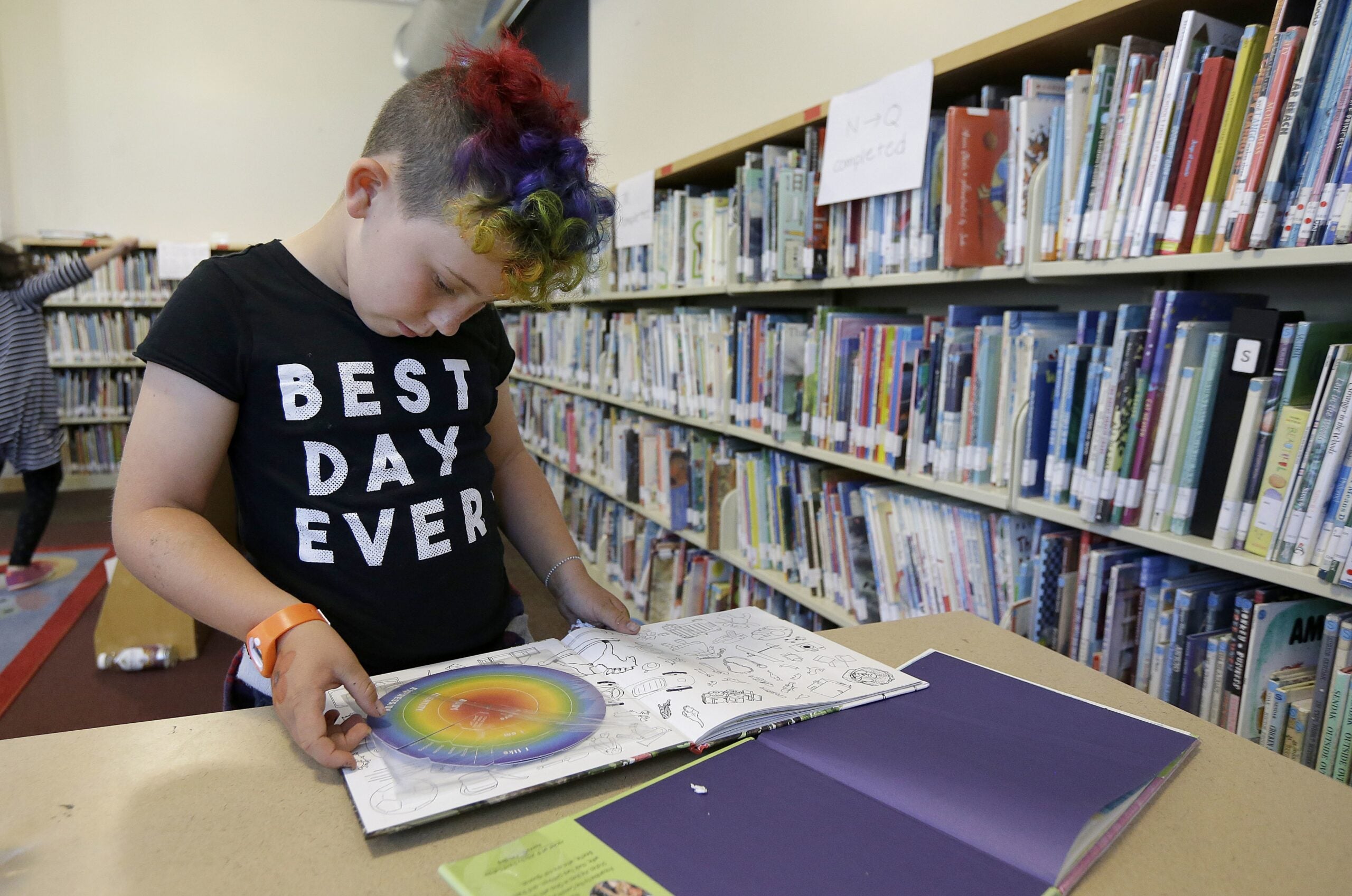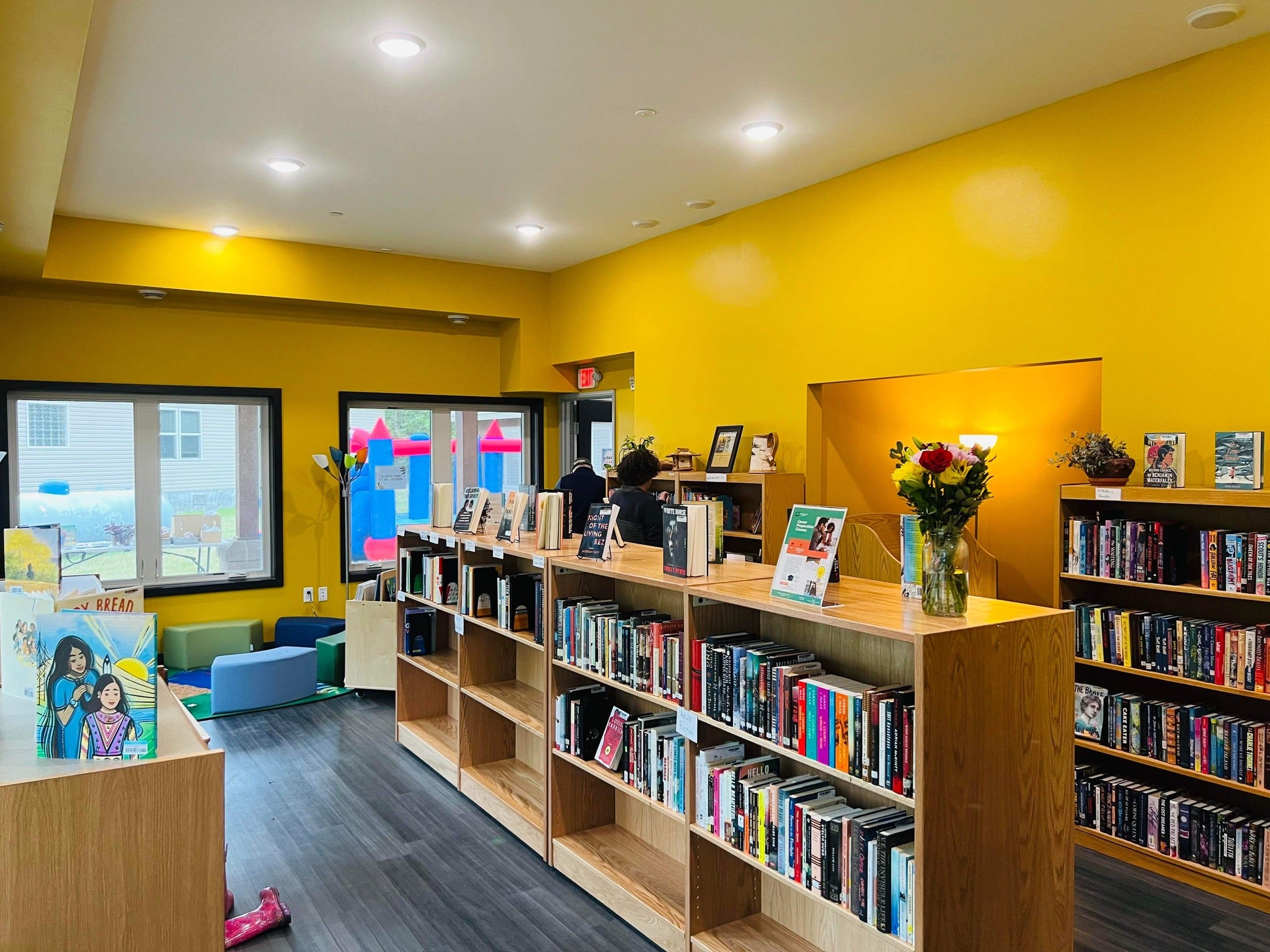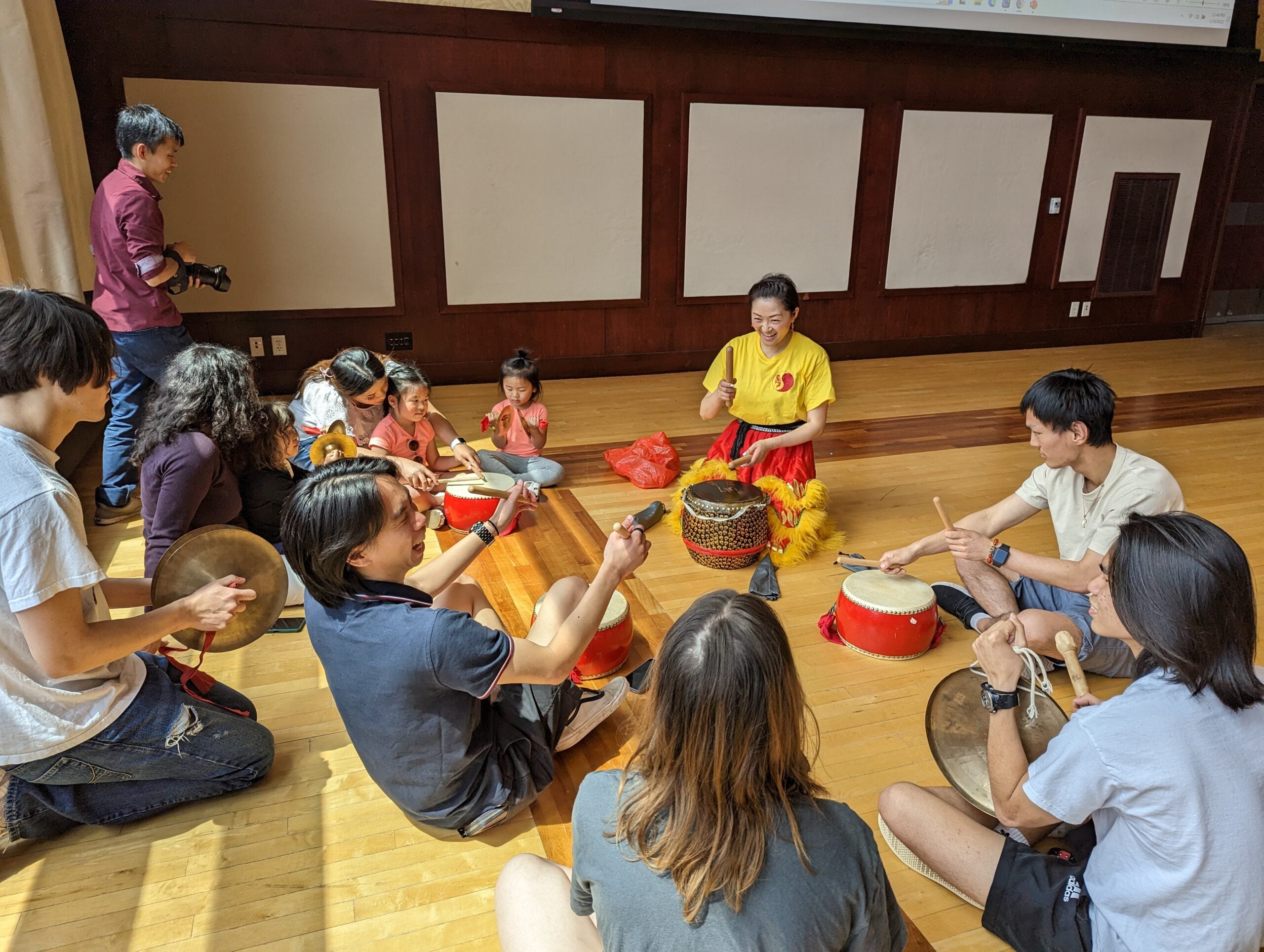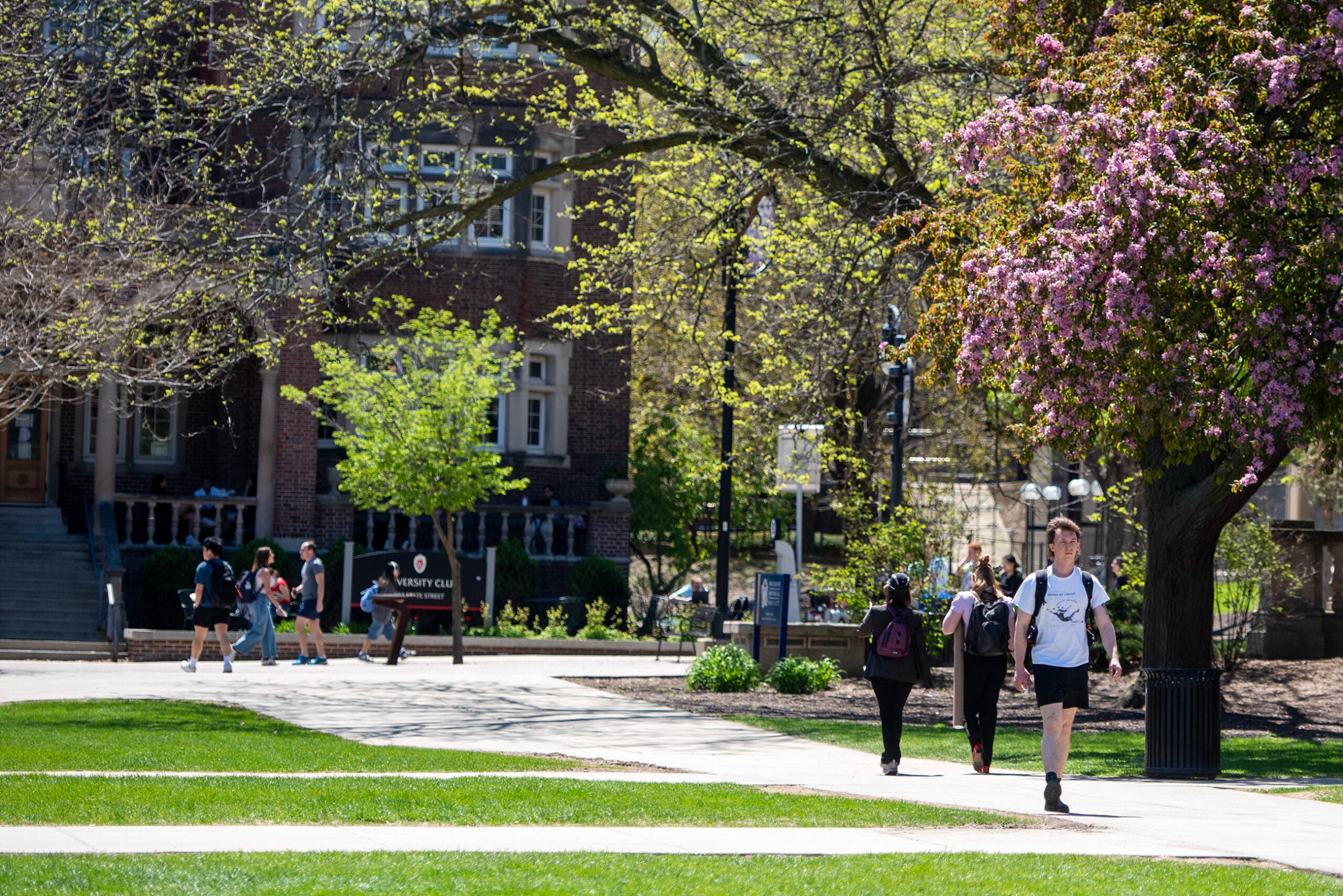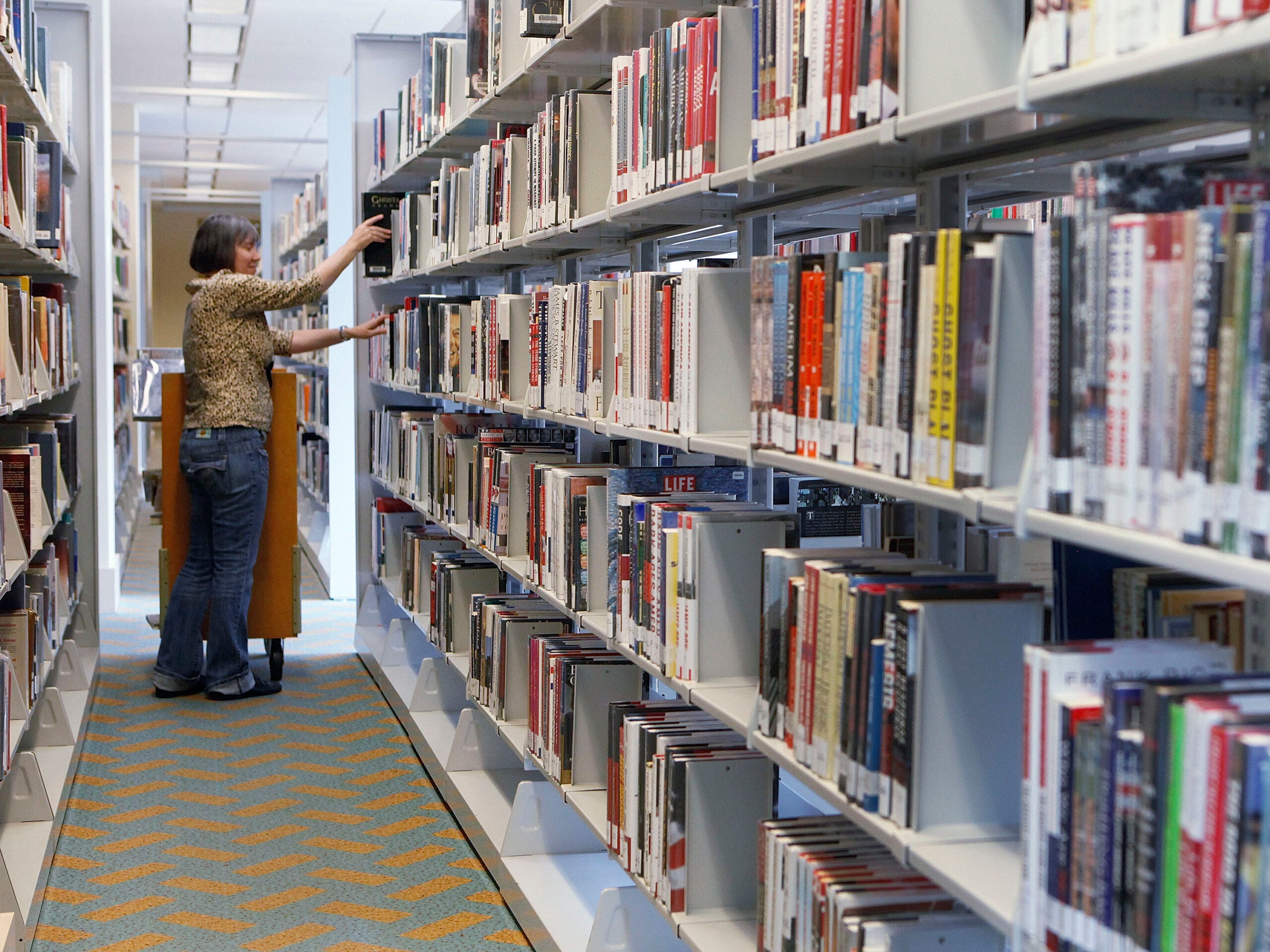Northwestern Wisconsin’s Spooner Memorial Library is outfitting its first bookmobile in more than two decades, thanks to federal relief funds granted to 33 projects at Wisconsin libraries.
Spooner has been working with the Eau Claire food bank Feed My People to run pop-up “Books and Bread” events throughout the pandemic, where it sets up a table with food staples and library books once a month at two different community locations.
With the $97,000 in federal relief funds the Spooner Memorial Library received through the state Department of Public Instruction, the library bought a cargo van and is retrofitting it to serve as a hybrid bookmobile and mobile pantry.
News with a little more humanity
WPR’s “Wisconsin Today” newsletter keeps you connected to the state you love without feeling overwhelmed. No paywall. No agenda. No corporate filter.
“We’re finding that bringing the library outside of the building is how we reach people,” said library director Angie Bodzislaw. “People come in here all the time, too, but it’s bringing the library to the people.”
Library staff are already using the van to transport boxes from the food pantry to its library site for “Compassionate Kitchen,” a pop-up pantry in the library lobby.
“Before, it was taking our personal cars to the food bank and hoping it’ll fit,” said Bodzislaw. “Now, we have this vehicle that’s large enough to do this.”
DPI awarded more than $3 million in American Rescue Plan Act funding to 10 public libraries and 15 library systems around the state. They’re funding three kinds of projects — improvements to library space and safety, hybrid library service models that support virtual resources and funds to make libraries centers of community resiliency.
The Winding Rivers Library System near La Crosse partnered with two other library systems in Milwaukee County and southwest Wisconsin to fund digital resources for student tutoring, job-seeker help and veterans services through the program Brainfuse.
“We’ve been expanding our database resources during the pandemic, and we really felt like this was another good expansion of digital resources that we could make,” said Winding Rivers director Kristen Anderson. “It’s something that people could access from wherever they are.”
The online platforms will include live tutoring help between 2 p.m. and 11 p.m., as well as some live assistance with resume review and job interview practice. Even before the DPI grant, Winding Rivers put resources into digital programming — its Creativebug online courses teach knitting, cross-stitch and other crafts, and Gale Courses range from public speaking to how to play the guitar.
The IFLS Library System, which has 53 public libraries in 10 counties, is using its $88,000 in grant funding to lean into some of the lessons learned during the pandemic about how to reduce the risk of illness by paying for things that make it easier to host outdoor or virtual events.
As part of the grant 11 libraries are getting book bikes, which IFLS library development and youth services coordinator Leah Langby described as “kind of like a miniature bookmobile, but for biking around with library materials and resources.” Another nine are getting canopies to make it easier to hold outdoor events or set up a table at community gatherings, and six are getting cameras and microphones that make it easier to capture in-person events so they can be livestreamed virtually.
“The really exciting things about these ARPA grants is that it gave libraries and library systems a chance to try out some things,” Langby said. “We work with a lot of very rural libraries and their budgets are very small, so finding funding for something like that is tricky.”
Several libraries’ use of the grants reflects something that library leaders have been saying for years, namely, that their physical collection of books, movies and other circulating materials are only a small part of the services they offer. During the pandemic, libraries stepped up their building Wi-Fi capabilities so community members could access the internet from parking lots even during their early pandemic closures, and the use of e-books and other digital resources skyrocketed.
Though libraries have reopened, Langby said they’re taking lessons from the pandemic.
“The outdoor kinds of things are partly an opportunity for libraries to go where people are, which is something libraries have been trying to work on for years,” she said. “But it also makes sure that folks know that we’re still here, we still care about you and we’re providing services.”
Wisconsin Public Radio, © Copyright 2026, Board of Regents of the University of Wisconsin System and Wisconsin Educational Communications Board.
